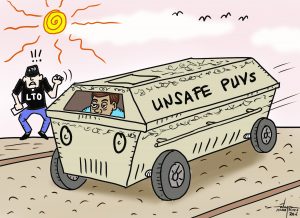The report of the Programme for International Student Assessment (PISA) 2018, which placed the Philippines at the bottom of the ranking, was an indication that the country has failed to improve its basic educational system.
The report was based on the National Achievement Test performance of students and that it was only last year was when the country joined the assessment.
Prompted by the report, the Department of Education (DepEd) came up with a statement saying that it was seeking to improve the system, adding that joining the assessment was aprt of its plan to strengthen the quality of basic education.
“The PISA results, along with our own assessments and studies, will aid in policy formulation, planning, and programming,” the agency said in statement, adding that the results also showed the need to immediately address key challenges that the system has been facing.
It also identified four key areas that need to be improved, review of the K to 12 program, facilities, skills of teachers and how to strengthen engagement with other stakeholders like parents and guardians.
“DepEd calls the entire nation to take active involvement, cooperation, and collaboration in advancing the quality of basic education in the Philippines,” it said.
Just about five years ago, the Philippine government came up with the implementation of the Enhanced Basic Education Act of 2013, or the K to 12 Act, which, among others, introduced basic kindergarten education as well as added two more years to the regular elementary and high school systems.
In enacting the law, the argument of those pushing for its implementation at that time was the Philippines was one of only three countries in the world that had 10 years of pre-tertiary education.
The advocates of the law argued that Filipino students faced daunting tasks of competing with other countries because the country’s basic educational system was shorter. Others claimed that the implementation of the law would allow finishers of basic education even before they could complete their degree courses as they would be made to take academic tracks that would prepare them for jobs.
However, although it would be difficult to conclude that the implementation of the law didn’t improve the quality of education based on the results of the assessment, one cannot question that there is still a gaping hole that needs to be filled. And lengthening the period of basic education may not even help, but may only create a bigger problem not only on the students but also on the livelihood of their families.
Reassessing the impact of the law, now that its implementation has gone beyond five years, is one important way to addressing the gaps.


